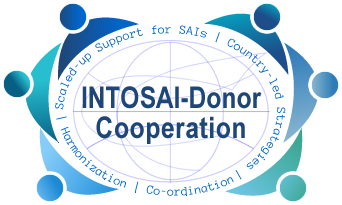Implementing the Pacific Regional Audit Initiative in Pacific Island Countries, Phase 2
Building the capacity of Pacific audit institutions is fundamental to improving governance in the region, and high-quality external audit is an essential requirement for creating transparency in the use of public funds.
2. In October 2005, Pacific Islands Forum (PIF) leaders endorsed for further study and analysis the Pacific Plan Initiative 12.1 (Key Integrity Institutions), which included the Pacific Regional Audit Initiative (PRAI).1 The PRAI design was subsequently developed by the Pacific Association of Supreme Audit Institutions (PASAI),2 with support from the Asian Development Bank (ADB) and Australian Aid, under the coordination of the PIF Secretariat.3 The August 2008 PIF Leaders’ Meeting endorsed the PRAI design. Following this endorsement, ADB, Australian Aid, the International Organization of Supreme Audit Institutions (INTOSAI) Development Initiative, the New Zealand Aid Programme, and the World Bank supported the successful initial implementation and delivery of PRAI outputs during 2008–2013.4
3. This proposed regional capacity development technical assistance (TA) will support the continued implementation of the PRAI in Pacific island countries, and has been developed in consultation with the PASAI secretariat and development partners.
The TA will support public entities in Pacific island countries to improve transparency and accountability in the management and use of their public resources. The outcome of the TA will be that SAIs in Pacific island countries will operate in accordance with uniform standards at a measurably higher level.
Methodology and Key Activities
14. The TA will deliver the following outputs and associated activities during 2014–2016, consistent with PASAI’s new strategic plan.
(i) Strengthened supreme audit institution independence. The TA will assist the PASAI secretariat in providing support to SAIs that need to have their audit legislation revised or enhanced to improve accountability and transparency.15 Some SAIs in the Pacific island countries have yet to obtain full independence, a complete mandate encompassing the entire public sector, unrestricted access to information, and freedom from restrictions to report on their work.
(ii) Strengthened transparency and accountability by contributing to and promoting an integrated approach to public financial management. The TA will support the PASAI secretariat in continuing to regularly survey and report on the status of transparency and accountability in the Pacific island countries. Consistent with the recommendations in the IED review, the report will be used to inform stakeholders and advocate the significance of good accountability and transparency. In addition, PASAI, together with key partners, will start working toward a more integrated regional approach to strengthening the accountability system.
(iii) Strengthened public financial reporting, public audit, and legislative oversight. The TA will continue to support two initiatives that have demonstrated results under phase 1—cooperative audits and the SAS program. Cooperative audits involve multiple audit institutions working together on a single audit. They also enable high-quality audit services to be delivered, particularly in specialist or complex areas, and support effective capacity development. The TA will continue to support the completion of cooperative performance audits using this approach. The TA will also support the SAS program for Kiribati, Nauru, and Tuvalu; and may add a fourth country.
(iv) Strengthened capacity and capability of supreme audit institutions to carry out their mandates. Under phase 1 of the TA, SAIs were provided with advice and support on strategic and corporate planning; records management; internal performance management and reporting; and human resources, legal, information and communication technology, and funding models. These requirements and other management and operational best practices are contained in the PASAI Strategic Management and Operational Guidelines. The TA will continue to assist SAIs in the development of strategic and business plans consistent with the guidelines, or provide advice where necessary to ensure that the plans align with PASAI initiatives, as well as the INTOSAI performance measurement framework.
Capacity development, Governance, Regional Cooperation and Integration
